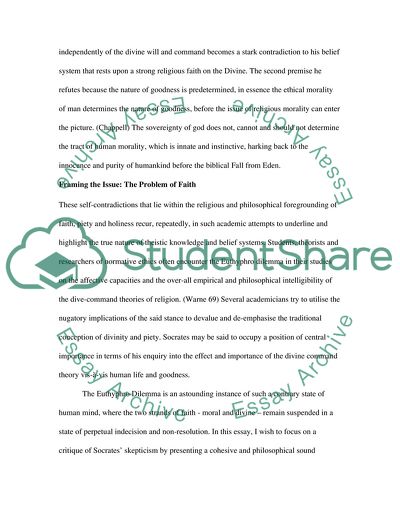Cite this document
(Euthyphro Dilemma and the Concept of Divine Piety Essay, n.d.)
Euthyphro Dilemma and the Concept of Divine Piety Essay. https://studentshare.org/philosophy/1819084-defining-piety-a-critique-of-socrates-argument-to-euthyphro
Euthyphro Dilemma and the Concept of Divine Piety Essay. https://studentshare.org/philosophy/1819084-defining-piety-a-critique-of-socrates-argument-to-euthyphro
(Euthyphro Dilemma and the Concept of Divine Piety Essay)
Euthyphro Dilemma and the Concept of Divine Piety Essay. https://studentshare.org/philosophy/1819084-defining-piety-a-critique-of-socrates-argument-to-euthyphro.
Euthyphro Dilemma and the Concept of Divine Piety Essay. https://studentshare.org/philosophy/1819084-defining-piety-a-critique-of-socrates-argument-to-euthyphro.
“Euthyphro Dilemma and the Concept of Divine Piety Essay”. https://studentshare.org/philosophy/1819084-defining-piety-a-critique-of-socrates-argument-to-euthyphro.


